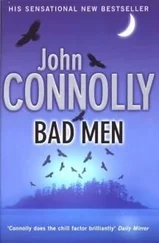Jean Rouaud - Of Illustrious Men
Здесь есть возможность читать онлайн «Jean Rouaud - Of Illustrious Men» весь текст электронной книги совершенно бесплатно (целиком полную версию без сокращений). В некоторых случаях можно слушать аудио, скачать через торрент в формате fb2 и присутствует краткое содержание. Год выпуска: 2011, Издательство: Arcade Publishing, Жанр: Современная проза, на английском языке. Описание произведения, (предисловие) а так же отзывы посетителей доступны на портале библиотеки ЛибКат.
- Название:Of Illustrious Men
- Автор:
- Издательство:Arcade Publishing
- Жанр:
- Год:2011
- ISBN:нет данных
- Рейтинг книги:4 / 5. Голосов: 1
-
Избранное:Добавить в избранное
- Отзывы:
-
Ваша оценка:
- 80
- 1
- 2
- 3
- 4
- 5
Of Illustrious Men: краткое содержание, описание и аннотация
Предлагаем к чтению аннотацию, описание, краткое содержание или предисловие (зависит от того, что написал сам автор книги «Of Illustrious Men»). Если вы не нашли необходимую информацию о книге — напишите в комментариях, мы постараемся отыскать её.
Of Illustrious Men — читать онлайн бесплатно полную книгу (весь текст) целиком
Ниже представлен текст книги, разбитый по страницам. Система сохранения места последней прочитанной страницы, позволяет с удобством читать онлайн бесплатно книгу «Of Illustrious Men», без необходимости каждый раз заново искать на чём Вы остановились. Поставьте закладку, и сможете в любой момент перейти на страницу, на которой закончили чтение.
Интервал:
Закладка:
A smell of mold greets these people voluntarily burying themselves, crowding together in a free-for-all on the benches, playing an original variant of musical chairs, ex-soldiers and the disabled — who are often one and the same — brandishing cards adorned with their photos and demanding priority, thinking that their past exploits justify a moment of weakness. The people who make a point of standing up wish to vindicate them, and are not so much offering them their seats as teaching the others a lesson. Reclaimed from the banks of the river, the alluvial subsoil releases its excess moisture through the crumbly stone walls. The people who have to stand don’t like to lean against them, oozing as they are, and here and there covered in saltpeter like a harbinger of what is about to take place above their heads. A naked lightbulb hanging on its wire communicates everyone’s fears to everyone else. Some people prefer to stay in the half-light and keep to themselves what the lighted arena so crudely reveals. Eyes meet, avoid each other, establish a short-lived complicity, and look away just before any secrets are confided. The proximity of death is no excuse for any lack of decorum. Keeping their legs tightly together, the women pull down their summer dresses, which reveal their knees and have never been so abbreviated. There’s something to be said for shortages, after all, when a saving on materials is also easy on the eye. One man, leaning forward and resting his elbows on his thighs, wouldn’t exchange his seat for anything in the world. With an air of profound anguish, his eyelids half lowered, his field of vision takes in his neighbor’s crossed legs. Yet this would be the right moment to put an arm around her trembling shoulders, to press her frightened hand with his as a comforting gesture, for their terror is sometimes so extreme that people’s hair stands on end, or even turns white between the beginning and end of an alert.
They all wonder whether their neighbor’s place might not be a better guarantee of survival than their own. Which way lies salvation? Over there, rather than here? On this side where the vault is low, or in the doorway? Which future victim’s number has already come up in this funereal lottery? When specks of dust start falling off a vault and sprinkling a head, its owner gives a start, raises his eyes to check the origin of this micro-earthquake, and without a word goes and picks another place. Although there are plenty of candidates, no one takes his seat. The people on either side of it automatically move apart, leaving a kind of well between them that is presumably the prime target for the disaster, as if it were possible that that little space marked by a handful of chalky dust could encompass the entire accumulated ruins of the ancient residence of the dukes of Brittany.
A great many of the refugees have come from the nearby moviehouse, the Katorza, in the street of the same name, between the rue Scribe and the place Graslin, where they are showing The Count of Monte Cristo with that good-looking actor Pierre Blanchard in the title role: two hours of the implacable vengeance of a rancorous maniac who hasn’t an ounce of pity in his makeup. After the first part of the program, which consists of a documentary and the newsreel (a loathsome voice trumpeting a victorious advance of the Axis forces and a shot of the Marshal kissing a little girl waiting to greet him with flowers as he gets off a train), and after the intermission, just as the credits are coming up on the screen, over and above the sudden music, or rather as if it were the amplification of a cancerous note, a long, crescendo lament that has nothing to do with the score brutally interruptes the projection, makes the lights come on again, and sends the cheated audience rushing toward the exit. Commenting on the event in the long, low vaulted cellar, someone says, “Avez vous vu Monte Cristo?” to which others reply with a knowing smile that “Now, Us n’ont vu monter personnel Then the conversations tail off, and waiting takes over. The silence floats up and curves around the vaults, arches its back, and is only slightly perturbed by the quickly stifled sound of a child’s sob.
“Joseph, aren’t you coming down?” No, he prefers to stay where he is. He feels safer under the roof timbers than in an underground shelter at the mercy of a random check for identity papers and no possibility of escape. Then, if anything actually did happen, he has no wish to be buried alive — or for that matter to be buried dead, either — and what’s more, under a false name. Who would claim the body of Joseph Vauclair, carpenter, born in Lorient? Who would weep for him? Anyway, there have already been plenty of alerts, but nothing has in fact ever happened. The bombers content themselves with flying over the town at a great height and save their lethal cargo to release over the industrial banks of the great river or a bridge upstream. One evening, when a pilot had been shot down and he was helping him to cross the Loire, he had watched this spectacular “son et lumiere” show, the horizon churned up by great geysers of fire, the golden pointillist reflections of the machine guns glinting in the water, and, through the screen of the night, the sweeping searchlight beams scouring the darkness and planting a very ancient idea of evil in the illuminated eye of a cockpit. “All right, see you later then, Joseph, but do take care.” With the flat of his hand, Joseph pats the piece of the framework they’ve been restoring. “Don’t worry, Monsieur Christophe, this is good and solid.”
No sooner has the sound of the carpenter’s footsteps disappeared down the stairs than a rumble, like the sign of an impending storm, can be heard in the distance, it grows louder, swells inordinately until it has invaded the whole universe, and soon covers the whole town with a dome of thunder, a mighty, deafening, mechanical drone, which prompts the tall young man to hoist himself up through a skylight to the roof, where he lies down flat on the slates, his face turned up to the sky, a front seat to salute the noble action of the liberators bathing so high up there in the blue empyrean, well out of reach of the reprisals of the antiaircraft batteries, by which everyone recognizes the nonchalance of the Americans, because the English pilots, perfect gentlemen, take every risk and dive-bomb in order to gain precision and to be sure not to miss their target. And there are so very many bombers that they cast a shadow over the setting sun on this late summer evening, they form a black, shifting, perforated cloud, suddenly connected to the earth by a curious Jacob’s ladder, its rungs crazily disintegrating as the bombs come tumbling down, whistling, from the open bomb bays, letting all hell loose as they crash on the ground near the rond-point de Vannes, their explosive chain advancing toward the place Bretagne, sending a series of columns of black flames swirling up and swelling above the roofs, which are perforated like cardboard boxes, now reaching the place du Pont-Sauvetout, so close that a conflagration hurls the observer up against a chimney stack, which thereby loses its cowls but nevertheless stops him from toppling over into the void, so the daredevil hastily retreats back into the attic, bruised and with his shoulder half dislocated, descends the stairs hunched up with his hands cupped over his ears, this pathetic gesture being all he now has to protect himself from the terrifying din, and it’s useless to shut his eyes to try to lose himself in the contemplation of that star-spangled retinal darkness, with every detonation his body feels the vibrations of the ground and the walls, but he hangs on to the strange idea that he can’t die under a false name, although he is still reluctant to go to the shelter the carpenter has told him about, under the Cafe Moliere, just a stone’s throw from the Katorza, but it’s too late now, the tragic work of the plow is eviscerating the place Graslin, sowing murderous seeds that come as a total surprise to the incredulous passersby, who are like the villagers who heard the little shepherd boy cry wolf so often that they refused to believe him, up till then the alert had merely been a convenient excuse to leave their office, shop, or factory and saunter over to the shelters, but now they’re rushing around madly in every direction, crying babes in arms whose faces are distorted by terror, with toddlers in tow, these in their turn trailing a toy or a teddy bear, swerving to avoid bombs and craters, knocked over by a shock wave, picking themselves up, starting to run again, putting off until later the thought of worrying about the trickle of blood coming from one of their temples, and on all sides there are shouts, exhortations to keep together, officials yelling out the names of the shelters, one explosion follows another, thousands of bombs fall on Nantes that afternoon, in the midst of which flares shoot up from the huge gashes in the pavement, severed gas pipes transformed into flame-throwers, as if the underworld inferno were joining its malevolent forces with the celestial wrath, and the heat is so intense around the Pharmacie de Paris, all its five floors ablaze, that the silver dishes in a nearby jeweler’s are reduced to a mercurial sauce, yawning gaps appear along the building line where apartment blocks have been reduced to rubble, sections of walls slowly begin to wobble and then collapse in an avalanche of stones that close the streets, redrawing the plan of the town, and, together with the torn-up cable car lines, the girders, the skeletons of cars and the bits of mangled furniture, forming pathetic barricades against the insurrection of the heavens, the buildings open up like dollhouses, with their beds alfresco, their fallen chimneys jammed up against a gable, their wall lamps going into a nosedive but restrained by an electric wire, wallpaper suddenly laid bare, as immodest as women’s underwear, the miracle of an unbroken mirror hanging over the void, and already, under the piles of stones, crushed, mutilated corpses, both of human beings and of cab horses imprisoned in their shafts, heartrending cries calling for improbable help drowned in the colossal din, and outside the Katorza, in a cloud of dust and smoke, wild-eyed, terrorized, the middle Burgaud daughter, the frail Anne, the pretty Anne, who — and this is a first — has cut her Thursday lesson to go to the three o’clock performance with her cousin, and she relates that without Freddy she would have died on that September 16,1943, bombed or killed by shrapnel, but she would have died at twenty-one, an incredible punishment for having preferred the beautiful, vengeful eyes of Pierre Blanchard to her accounting lesson — oh Mother, keep close to your cousin, he lives in Nantes and knows the shelters, don’t stay there petrified on the pavement in the middle of that deluge of stones of fire, you must be very much alive and still as beautiful, when you seal a love pact — and it will be quite soon now — with the tall young man you were hoping for who is gambling his life in the neighborhood, your eyes have already met on those Sundays he spends with your family, you have detected an underlying sadness, whose cause you can guess, in his gentle smile, you have enjoyed his conversation — he has read a lot and he knows thousands of things. You may even have noticed that for some time now he has been trying to attract your attention by a friendly word, by his considerate behavior, but you must admit that — like everyone else, actually — you are susceptible to his charm, his high spirits, his kindness, you have observed his good manners — and for you, they count — his natural elegance, his way of holding his cigarette between the tips of his yellow, nicotine-stained fingers, or of inclining his tall frame when he’s shaking your hand to say good-bye, obliging you to look up at him, but it’s common knowledge that tall men often marry short women, you’ve seen him, so skilled with his hands, repairing the doll of a little girl who has been evacuated to Riancé with her mother and handing back to the overjoyed child that miracle of plastic surgery, its eyes back in its orbits, its arm mended. You are not unaware that he has evaded forced labor and has been hiding at a farm in the vicinity — he’ll be going back there for a few days for the autumn plowing — but don’t go jumping to any hasty conclusions because we’re talking about a brave man — do you know his nickname in the Resistance? Jo the tough guy, yes, you’ve certainly heard it, but he won’t boast about it, it will come to light in a letter written at the end of the war by the head of the Neptune network, which he belonged to for a time, testifying to the fact that he carried out several dangerous missions and that his conduct and courage were always deserving of the highest praise, but he can’t put up with any authority for very long, that’s a trait of his character, you’ll have to get used to it. And he changes groups the way he will later change employers, the next network is called Vengeance — rather a grandiloquent name, but you can understand — and after that we find him as an agent in the Intelligence Service, a volunteer liaison officer with General Patton’s army, and incidentally it was then that he performed a most heroic feat of arms (and of love) in diverting the American convoy he was supposed to be guiding so that it passed through Riancé — to kiss whom, do you suppose? And then there’s the famous episode of the motorbike later described by Etienne, with the Allies making their way toward Paris and the eastern frontiers, not bothering about the remains of the German army, which, cut off from its bases, has entrenched itself aggressively in what are later called pockets, and the one near Saint-Nazaire, which includes Random, is one of the most formidable as it won’t surrender until the day after the Armistice, but the tall young man who has taken part in the liberation of his sector is not aware of this situation and is making a beeline for his family perched on the motorbike behind Etienne, whose head is eight inches below his, his inevitable beret pulled down to his ears, both of them drunk with the wind and their newfound liberty, which they celebrate in their own fashion as they speed through the villages hooting and zigzagging all over the road without rhyme or reason, and then at the bottom of the hill leading up to Random there’s a German roadblock, he grabs his two pistols, one in each hand, preparing for them to force their way through, “Joseph, you’re crazy,” yells Etienne, who prefers stratagem and slows down as if he is going to comply but then abruptly steps on the gas, bullets come whistling all around them as, bent low over their machine, they suddenly plunge down a steep path on the side of the road, abandon the bike in a bog — the next day Etienne will innocently report that it’s been stolen — but this time also our tall, brave young man gets away with it, and you too, Anne, you have the best reasons in the world to take great care of yourself, for yourself, for him, for us, so as not to die before someone has said a few words about us, we aren’t important enough for anyone else to take on the job, we’re too humble, too hardworking, and if you die on this dark day, what becomes of us? who will project us into the light? will you leave us, poor little things of naught, in the antechamber of life’s rejected candidates? have faith, we shall win, Freddy is our only chance of emerging as a unit, as a loving family, from anonymity, Freddy, for whom a tragic stroke of misfortune is reserving a dreadful fate in Dresden, among the two hundred and fifty thousand victims of that old-style Hiroshima, but hurry up and take shelter, do we need to convince you by describing the photo that will soon be taken on your engagement day? you are walking arm in arm down a little country lane, you so small in spite of your wedge heels, radiant in your elegant suit, its collar trimmed with black velvet, and with your elaborate hairstyle, the sun behind your backs casts your twin shadows, looking at that dazzling demonstration of grace and youth, how can there be any doubt? it’s quite certain, you will be happy, you will live ten thousand years, your path will be strewn with rose petals, so don’t just stand there petrified with terror on that murderous pavement, at your side a woman has collapsed and her guts are gushing out of her open belly, this is our chance, your scream alerts your kindly cousin who finally spots you through the cloud of smoke, pulls you by the hand, and runs with you to the cellars of the Cafe Moliere, while at that very moment, in the ruins of the moviehouse, the blazing screen is spewing out its final flames — phew, we’re saved.
Читать дальшеИнтервал:
Закладка:
Похожие книги на «Of Illustrious Men»
Представляем Вашему вниманию похожие книги на «Of Illustrious Men» списком для выбора. Мы отобрали схожую по названию и смыслу литературу в надежде предоставить читателям больше вариантов отыскать новые, интересные, ещё непрочитанные произведения.
Обсуждение, отзывы о книге «Of Illustrious Men» и просто собственные мнения читателей. Оставьте ваши комментарии, напишите, что Вы думаете о произведении, его смысле или главных героях. Укажите что конкретно понравилось, а что нет, и почему Вы так считаете.












